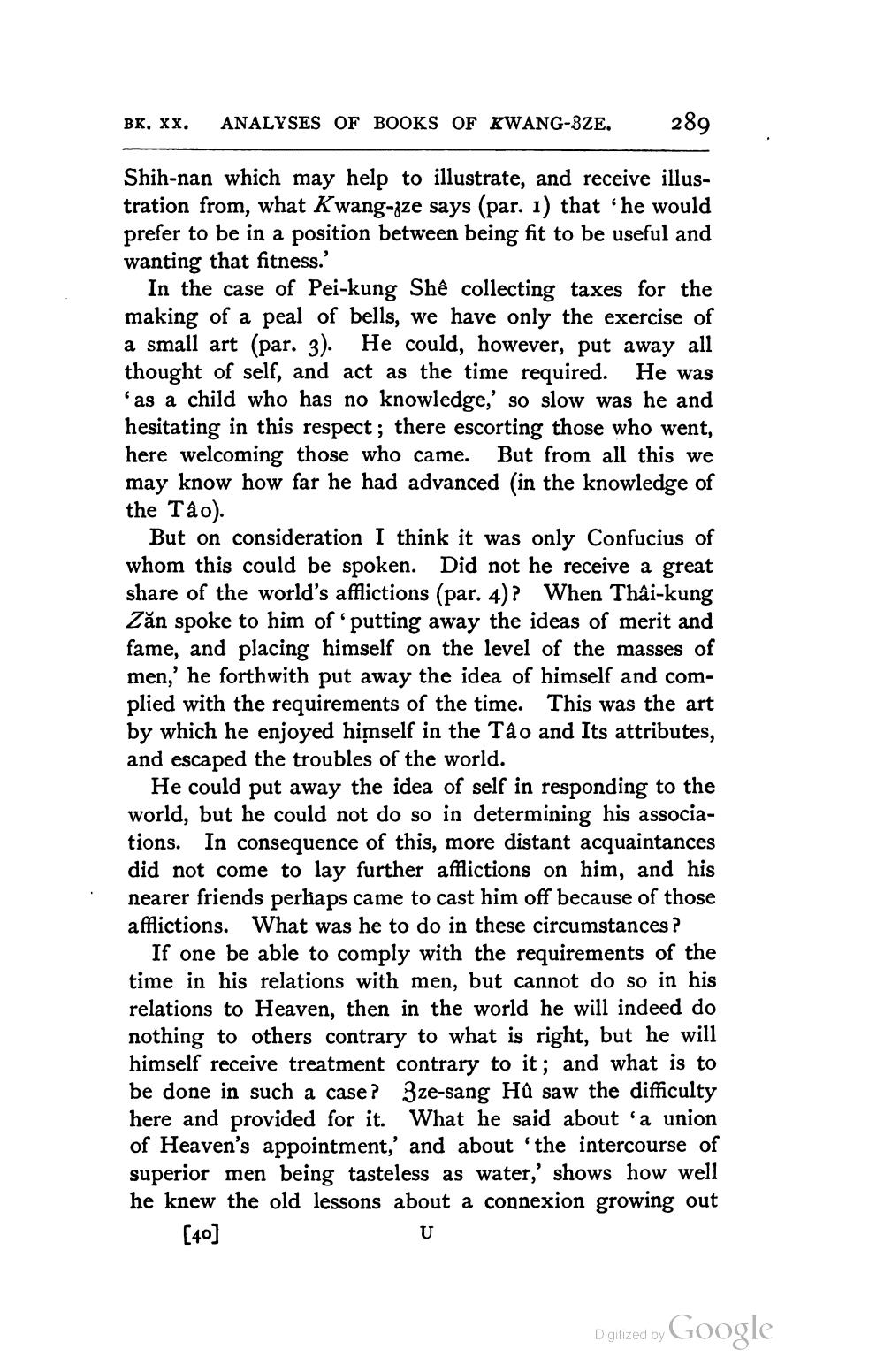________________
BK. xx.
ANALYSES OF BOOKS OF KWANG-BZE.
289
Shih-nan which may help to illustrate, and receive illustration from, what Kwang-zze says (par. 1) that he would prefer to be in a position between being fit to be useful and wanting that fitness.'
In the case of Pei-kung Shê collecting taxes for the making of a peal of bells, we have only the exercise of a small art (par. 3). He could, however, put away all thought of self, and act as the time required. He was
as a child who has no knowledge, so slow was he and hesitating in this respect; there escorting those who went, here welcoming those who came. But from all this we may know how far he had advanced (in the knowledge of the Tâo).
But on consideration I think it was only Confucius of whom this could be spoken. Did not he receive a great share of the world's afflictions (par. 4)? When Thâi-kung Zăn spoke to him of putting away the ideas of merit and fame, and placing himself on the level of the masses of men,' he forthwith put away the idea of himself and complied with the requirements of the time. This was the art by which he enjoyed himself in the Tâo and Its attributes, and escaped the troubles of the world.
He could put away the idea of self in responding to the world, but he could not do so in determining his associations. In consequence of this, more distant acquaintances did not come to lay further afflictions on him, and his nearer friends perhaps came to cast him off because of those afflictions. What was he to do in these circumstances ?
If one be able to comply with the requirements of the time in his relations with men, but cannot do so in his relations to Heaven, then in the world he will indeed do nothing to others contrary to what is right, but he will himself receive treatment contrary to it; and what is to be done in such a case? Zze-sang Hû saw the difficulty here and provided for it. What he said about 'a union of Heaven's appointment,' and about the intercourse of superior men being tasteless as water,' shows how well he knew the old lessons about a connexion growing out
[40]
Digitized by Google




